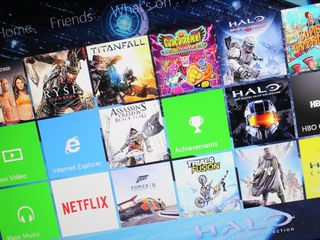Here's why Microsoft should abolish its ID@Xbox parity clause for Xbox One

Microsoft helped pioneer indie games on consoles with the Xbox 360. Even though Microsoft was the first of the big three to support indie games, many developers hated the company's strict guidelines. Indie games had to be published by larger companies, making it tough to get your game on Xbox Live Arcade.
With the Xbox One, that was all supposed to change. Microsoft would allow all Xbox One consoles to become dev kits in order to reduce development costs. However, Microsoft has since backtracked from that plan. On the plus side, they started the ID@Xbox program to help indie games come to the new console. But it seems as if the ID@Xbox parity clause is beginning to hurt indie dev and gamers alike.
For those who don't know, Microsoft has an equality clause for indie developers that makes it impossible for an indie dev to bring its game to Xbox One if it has already launched on Playstation 4. The only way Microsoft allows an indie game to hit both consoles is if launches within the same window on Xbox One. Back in October when the parity clause became a huge headline, head of Xbox Phil Spencer defended the parity clause, saying:
"I'll be honest; the thing I worry about is I look at all the people who buy an Xbox and invest their time and money in Xbox One," he said. "Millions of people own Xbox One and I want those people to feel like they're first class, because they are."When a third party game comes out it comes out on all platforms at the same time. When indie games come out, I want them to come out, and I want Xbox to feel like it is a first-class citizen when an indie game launches."I don't want somebody to come in and just think 'I'm going to go do a special game on one platform and then I'll get to Xbox whenever I get to it.' I don't think that's right."
As expected, this helped dwindle the flames of ire that Microsoft had created for itself. But as many Xbox One owners watched the PlayStation Experience this weekend, those flames have begun to burn once again.
Yesterday on NeoGAF, a game developer revealed the fact that since September 1 of this year, 66 indie games have been announced for current gen consoles. Now here's the heartbreaker: 47 of those games have plans for PlayStation 4 and no plans whatsoever for Xbox One! Now thanks to the parity clause, these games could never end up on the Xbox One platform without special permission from Microsoft. This decision leads me to believe that Microsoft still doesn't understand indie game developers.

No Man's Sky
There is no set in stone definition for a game developer to be considered an indie game studio, but these studios do share some common characteristics. First off, indie games are usually developed by small teams. I would say that most indie studios have less than 50 people working on the game, with the majority having fewer than 20.
Get the Windows Central Newsletter
All the latest news, reviews, and guides for Windows and Xbox diehards.
For example, Hello Games, the studio behind No Man's Sky has 12 people working on that game. Whereas Ubisoft Montreal has 2,100 employees that worked on Far Cry 4, Assassin's Creed: Rogue, and Assassin's Creed: Unity this year alone. You can easily imagine how hard it would be for 12 people to work on Playstation 4, Xbox One and PC at the same time. It's safe to say that the game would have little polish and tons of bugs.
Secondly, most indie games run on engines that still haven't been optimized for the new consoles. That means that developers would have to tweak their engines while in full development in order to ensure optimal performance. This requirement could be extremely hard for a small team to do for three different platforms simultaneously. The need to support multiple platforms creates a longer development process and higher development costs. In other words, time is money.
That last word is the key issue: money. Many indie devs reach into their own pockets for game development costs. Some have even gone to the lengths of using Kickstarter and Indiegogo to help them fund their game. The thing about indie studios is they typically have no revenue coming in while they are developing the game. If they don't crowdsource, they will usually have money set aside for development, or else they have another full-time job to help with development costs. Until a game ships, it can easily just be considered an expensive hobby.

The Forest
Phil Spencer stated that Xbox One gamers "are first-class." They deserve to get access to indie games no matter which console it launches on first. They shouldn't be prevented from having great experiences just because a developer didn't have the time or manpower to create a game for both platforms at the same time.
We as Windows Phone users know exactly how this feels. We have fought for app parity, yet we do understand the reason behind late ports to Windows Phone. Now just imagine if Microsoft held an equality clause for app developers that want to bring their app to Windows Phone. Developers would jump ship, and we would be screwed.
If there is one thing owning a Windows Phone has taught me, it's that indie developers deserve support, especially when they create something truly amazing. I don't want to have to spend another $400+ on another console just to be able to enjoy the best narrative experiences or gorgeous art styles of the many indie games that are launching on PlayStation 4.
I bought the Xbox One with the hopes of being able to play the best games made, whether exclusive to Xbox One or ported from another console. This gaming experience is why I want the Xbox One parity clause abolished. All Xbox One gamers deserve the first-class experience and innovation that indie games so often produce.
I know many of you would love to play No Man's Sky, The Forest and the newly remastered Grim Fandango. Tall will be great experiences that no gamer should have to miss out on... Especially not due to an undercooked parity clause. All indie games should be able to make the Xbox One their home, no matter where they first launched. Let's tell Microsoft that we want the parity clause to go away so the Xbox One can get the great indie games that it deserves.

